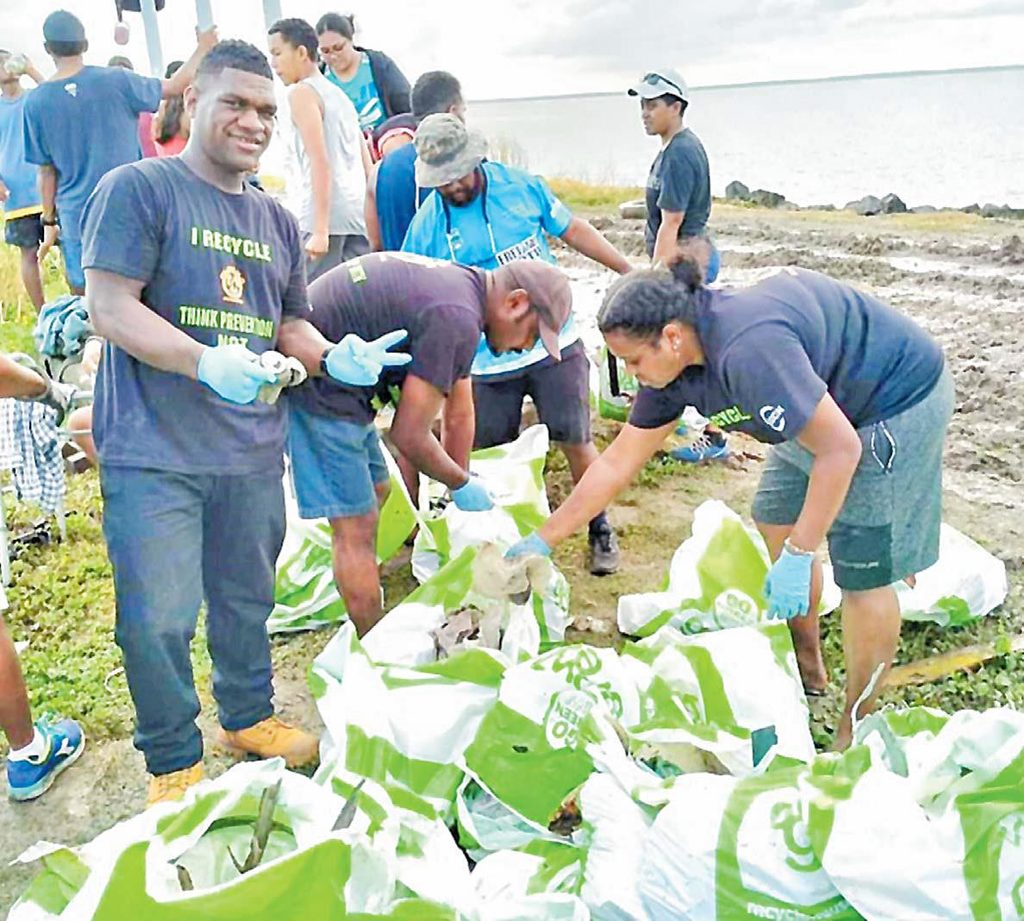Bula Vinaka shoppers, Have you ever stopped to think about the rubbish you create every time you shop? Every packet, plastic bag, and disposable wrapper eventually becomes part of the waste problem that surrounds us.
If you added up the packaging you throw away in a week, fortnight, or month, the pile would likely be bigger than you imagine. Fiji today faces significant rubbish problems.
Limited waste management infrastructure, inadequate regulations, and illegal dumping into waterways and land have combined with urbanisation, population growth, and heavy reliance on imported goods to create a mounting crisis that leads to environmental pollution, public health risks from pests, blocked drains, and substantial economic costs tied to waste management and lost resources.
The lack of recycling plants and inconsistent collection services—especially in informal settlements, outer islands, and rural villages—worsens the problem.
Rapid population growth and changing lifestyles have increased reliance on plastics, which are difficult to recycle locally. Our landfill space is also running out. Meanwhile, widespread dumping of household rubbish into creeks, rivers, beaches, and hillsides continues.
My colleague Anaseini, who lives in Nausori, told me their community has no rubbish collection at all. Families are forced to either burn their waste or dump it in the open. It’s a situation mirrored in many villages where people dispose rubbish in rivers or dug holes.
These practices may be convenient in the short term, but pollute waterways, destroy coral reefs, damage fragile coastal environments and seep into the fertile soil.
The health impacts are alarming. as waste creates breeding grounds for rats and mosquitoes that spread dengue fever, leptospirosis, and typhoid. Litter blocks drains, causes flooding and contamination.
Poor waste management undermines tourism, by spoiling the natural beauty tourists come to enjoy. The Consumer Council of Fiji has warned that landfills are filling up fast while consumer habits continue to drive unsustainable levels of waste—particularly food waste.
This issue is troubling in a country where many families still struggle to access adequate meals.
The growing problem of food waste Food waste is not just about tossing leftovers; it carries wide environmental, social, and economic consequences.
When organic matter ends up in landfills, it decomposes without oxygen and produces methane, a greenhouse gas far more potent than carbon dioxide.
This worsens climate change and undermines our sustainability goals.
Wasted food is wasted money. For homes in villages and settlements, that loss can be significant.
Socially, it is a painful contradiction: food goes to waste while families remain hungry. Yet many low-cost, traditional practices that could reduce food waste—such as composting, drying, and smoking—are underused in modern Fiji.
Reviving these while creating new, community-led solutions is critical.
The “Share to Sustain” project
To address this, the Consumer Council has launched Share to Sustain, a project funded by the Swedish Society for Nature Conservation through the Green Action Fund. This initiative takes a grassroots approach to waste reduction, empowering communities with tools and knowledge to take action.
The project focuses on three pillars: Awareness and Education – workshops teaching waste reduction, composting, and food preservation; Community Sharing Hubs – spaces where surplus food and household items can be exchanged; Practical Engagement – composting sites, provision of materials, and training to ensure continuity.
Already, the project has been rolled out in three villages: Nabena (Naitasiri), Dranikula (Galoa), and Sawakasa (Tailevu).
Each village highlighted both the challenges of rural waste management and the creativity of communities when given the right support.
Lessons from the villages In Nabena Village, a long distance from municipal waste services meant that food scraps were usually burnt or dumped.
During the workshop, villagers learned composting basics, such as using vegetable peels, fruit scraps, and garden waste. Composting not only diverts rubbish from landfills but enriches the soil for farming.
They were given three compost bins to start a shared system.
In Dranikula Village, Galoa, the focus shifted to community-led management. Village leaders and residents discussed ways to strengthen waste systems while reviving traditional food preservation practices.
By combining new knowledge with old traditions, the village can manage waste more effectively while reconnecting with cultural values of stewardship.
In Sawakasa, Tailevu, participants received compost bins and training in practical composting techniques.
The handover of bins marked the beginning of a new mindset where waste is seen not as useless, but as a resource that benefits the community.
Why this topic matters for shoppers?
So what does all this mean for us, shoppers filling our baskets and trolleys each week?
It means waste starts with the choices we make. Do we take another plastic bag, or bring our own bags?
Do we buy more food than we need, only to throw some away? Could leftovers become tomorrow’s lunch instead of rubbish?
While government policies and waste services are important, the truth is that every one of us plays a role.
Waste management is not only about rubbish—it is about values: respect for our land, care for our communities, and responsibility for future generations. Conclusion
The Share to Sustain initiative shows that tackling food waste is not just an environmental necessity but a social opportunity.
By combining traditional practices, practical tools, and collective responsibility, it offers a way forward for communities.
Food waste may be one of the pressing challenges of our time, but solutions exist—through shared responsibility, revived traditions, and empowered communities. As we journey toward sustainability, projects like Share to Sustain remind us that small, practical steps will lead to lasting change.
This is a conversation worth having around our dining tables, the tanoa, in our tokatoka, mataqali, yavusa circles, and in our churches. Because when we share, we sustain—and in doing so, we protect the environment for generations to come.
It starts with shopping responsibly!

